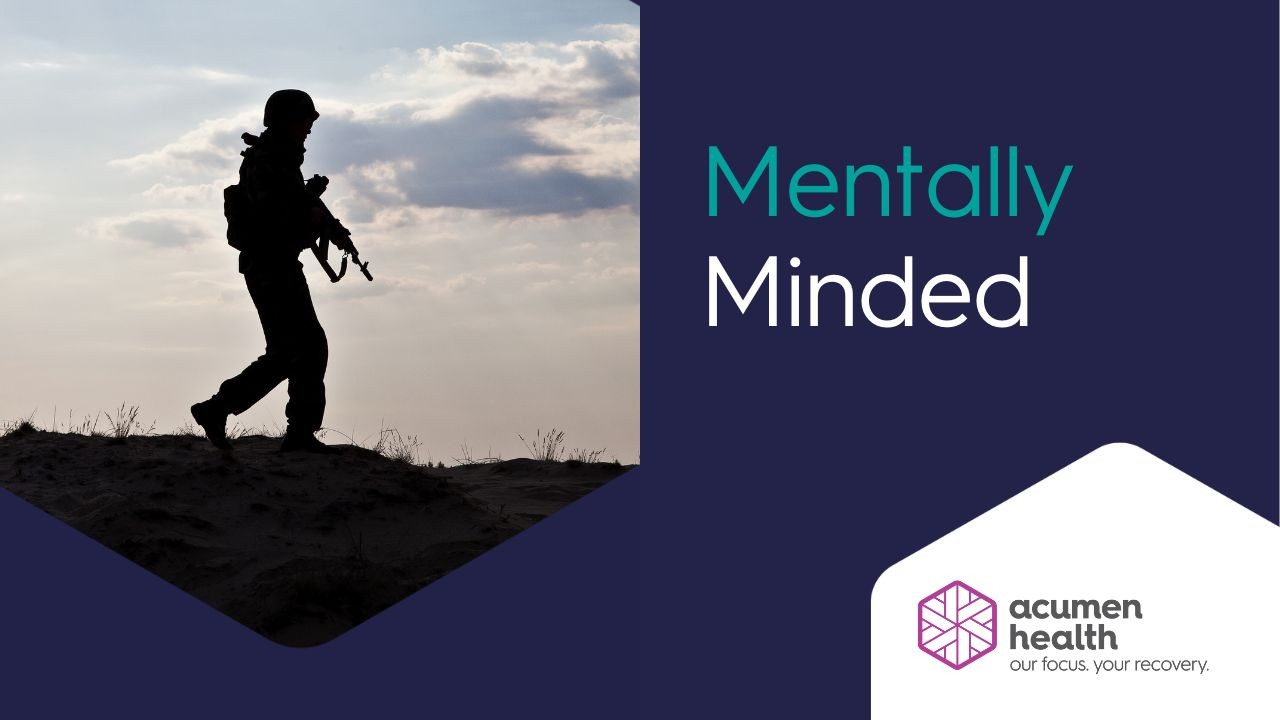Finishing military service is a time full of emotion and uncertainty.
Usually not just for the individual, but their loved ones too.
Which is why during Veteran’s Health Week (8 to 15 October), we’re exploring why mental health should be a priority for transitioning veterans.
The transition to civilian life is a significant change – requiring someone to establish a ‘new normal’.
It is a change which can be prepared for with the right support.
And one that no one should do alone.
Common challenges for transitioning veterans
- Loss of purpose
- Loss of structure
- Isolation
- Loss of sense of belonging
According to US research, some of the challenges which can affect a smooth transition into civilian life include, but are not limited to:
- Deployments
- Experience of service-related psychological or emotional trauma
- Experiencing a physical injury while serving
- Lack of transition planning
Throughout this period of change, it is essential to have access to mental health support and services which can make this transition as smooth as possible.
Supporting mental health isn’t all about therapy
If a person is reluctant or not experienced with asking for support, it poses significant challenges for their transition.
While psychological counselling is an effective tool for ongoing wellbeing, it isn’t always the first step for everyone.
It may not feel natural or easy at first to engage with support services.
In addition, supporting a veteran’s mental health can involve multiple services and may look like:
- Accessing community support services
- Work readiness or career transition programs
- Navigating a compensation process (if required)
- Accessing health services and therapies
- Support for skills such as housing, public transport, paying bills
All of these contribute to providing stability and support for a person’s wellbeing as they transition into civilian life.
Preparing for transition
Where possible, planning the change from military service to civilian life may make the impact of transition easier for veterans and their families.
Some of the simple starting points for service personnel and veterans is to build a plan around these four things:
- Maintain good health practices – if you can, keep up with physical exercise and healthy eating.
- Identify routines – Find the things you can do everyday and build a routine. Include activities to support your mental and physical health.
- Link with support networks – make plans and schedule time with friends and family, or community support services.
- Engage in community activities – find local groups or organisations that you’re interested in and connect with people in your community.
Useful resource: Military identity and planning for the transition out of the military – PubMed Central
Reaching out for support
Whether you’re supporting yourself or someone you care for, it’s important to look after your own mental health and wellbeing.
- Open Arms – Veterans & Families Counselling (formerly VVCS) – Provides free and confidential counselling 24/7 to partners and children of those who have served. Call Open Arms on 1800 011 046.
- Counselling and support for families is provided to a veteran’s family to assist with managing challenging life situations.
- Lifeline Australia – Provides free support services if you are in crisis and need to talk to someone.
- 1800 RESPECT – Provides 24-hour counselling services to help you cope with sexual assault or violence.
- Head to Health – Head to Health provides resources and links to a variety of websites and apps to support veteran mental health and wellbeing.
- Joint Health Command – The ADF health and wellbeing portal ‘Fighting Fit’ directs you to a wide range of Defence websites containing information on ADF health and mental health services and support.
- Ex-service organisations – Connect with an ex-service organisation in your local area. These organisations may be able to provide you with support and resources.
- Relationships Australia – Offers a broad range of services to individuals, families and communities across the country such as counselling, mediation, and family dispute resolution. Contact your state-based Relationships Australia service on 1300 364 277.




